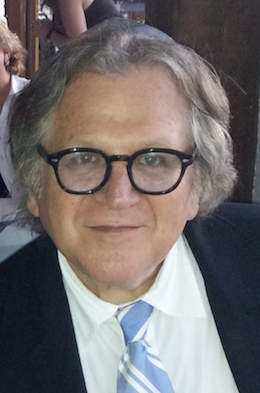There is a new national Jewish community agency with a decidedly retro feel and familiar faces. Several leaders from the defunct Canadian Jewish Congress have founded Canadian Jewish Community Forum, saying they are filling a gap in grassroots activism.
Dr. Michael Elterman, who, in the 1980s and ’90s, was a two-time chair of Canadian Jewish Congress, Pacific Region, as well as regional chair of the likewise defunct Canada-Israel Committee, is a member of the steering committee of the new group. Renee Switzer, a former national executive chair of CJC, is the other Vancouverite on the committee. Other figures leading the group include past national and regional chairs of CJC, as well as senior staff of the agency, including longtime chief executive officer Bernie Farber.

The first serious discussions among the group started in January, said Elterman.“What we are interested primarily in doing is creating and resurrecting what was an essential theme that brought us all into CJC, which was that it was primarily a grassroots organization where people could become individually involved in, or take ownership of, the Jewish agenda in Canada,” he said. “I guess the feeling is that we would like to re-create that again and get people more engaged and more involved and feeling personally responsible for what happens to the Jewish community in Canada.”
The focus will be primarily on domestic affairs, he said, although the direction the group takes will be determined, first, by a major survey CJCF intends to undertake of Jewish Canadians and, later, through the sort of plenaries and democratic debates that typified CJC.
While the group boasts a wealth of experience, Elterman stressed that a young cohort is also at the heart of the new group.
With the Centre for Israel and Jewish Affairs (CIJA), which effectively subsumed CJC and the Canada-Israel Committee in 2004, as well as B’nai Brith Canada and Friends of the Simon Wiesenthal Centre, Canada has no shortage of national Jewish agencies. Elterman sees room for one more.
“There were many people –– which is why you are seeing such interest in the organization – who would like to be more involved both in the setting of the agenda and in the actual participation in an organization,” he said.
The new group doesn’t intend to detract from existing agencies. “I don’t think this organization is in contrast to or competition with any other organization,” said Elterman. “The emphasis on being a grassroots, bottom-up organization, having the agenda driven by the community rather than by a particular group of people, that I think is what is going to make this unique and that is what made CJC unique.”
Organizers have not reached out to CIJA or the others as yet, he acknowledged. “If they would like to join with us, that’s great, but it’s not something that is being done jointly with any other organization,” he said.
Funding for CJCF is bootstraps for now, with members of the steering committee anteing up for federal incorporation and other essentials. The group will seek charity status to issue tax receipts and Elterman said they hope donors will step forward in time.
A priority for CJCF will be to build bridges with other communities on issues of shared concern, something at which Elterman said CJC excelled.
On the new group’s website (cjc1919.blogspot.com), a four-point statement of purpose includes a promise to “engage with other faith, Indigenous, racial, ethnic and cultural communities to find common cause in matters pertaining to the promotion of civil discourse, reconciliation, inclusivity and mutual understanding and to fight against antisemitism, discrimination, racism and hatred in all their forms. Many important issues facing society at large are viewed to be relevant to the Jewish community. If we are to have a voice in the society we are creating together, we must discuss and address issues as they emerge together as Canadians.”
